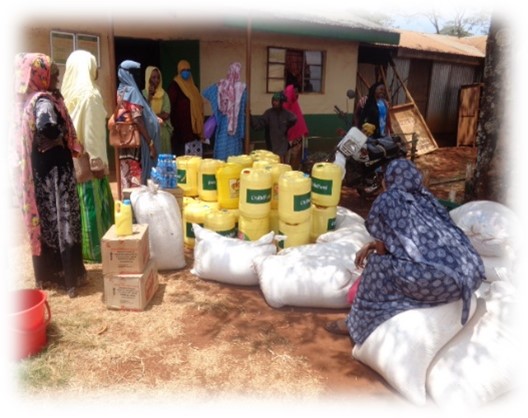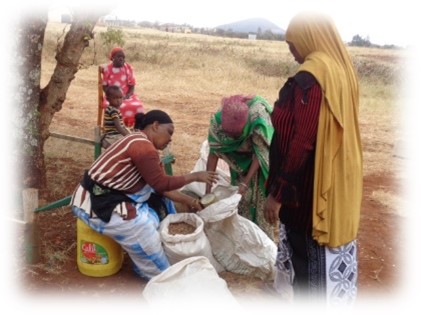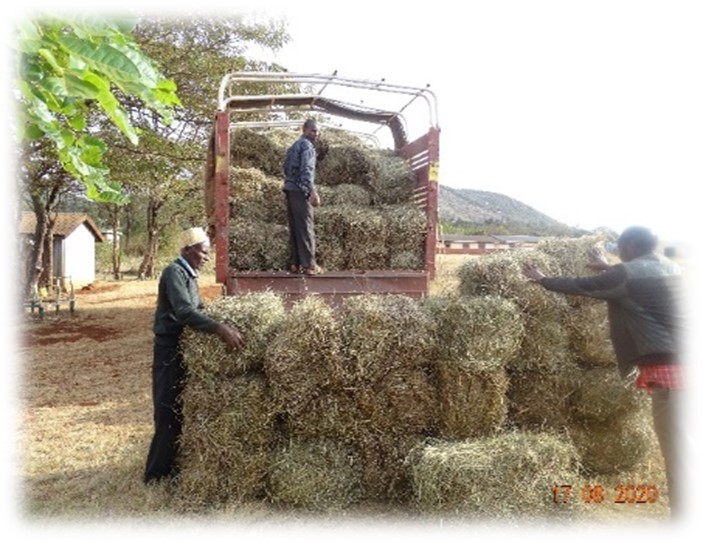Support 27 households with water storage tanks of 1,500 liters each to harvest rain water in Marsabit (Saku Sub - County)
Marsabit Conflict Intervention (340 PLWs supported through assorted food supply)


Marsabit conflict emergency intervention supported (Trainings)
21 CRPs trained on DRR, climate change and covid prevention in Marsabit County.
21 (8 Female and 13 Men) Community Resource Persons were trained on disaster Risk Reduction. The main objective is to strengthen the capacities of Participants to mainstream the Disaster Risk Reduction and Management concepts, principles and practices in planning and implementation of community development efforts. Although floods, droughts, and other natural hazards cannot be prevented, their impact on communities can be limited through disaster risk reduction (DRR) practices. Early warning system leveraging on technology and indigenous practices to inform community action.
Desert Locust Invasion intervention

In collaboration with ChildFund Kenya and support of ChildFund Korea, Nawiri Child Development Programme geared up its humanitarian response to reach vulnerable families affected by Locust Invasion in Marsabit and Isiolo counties, aiming to support households in their recovery, improve food security levels, and ensure access to basic household needs, through distribution of 320 Kgs of maize seeds, 320 Kgs of Sorghum, 160 Kgs of beans benefiting (250 Female
and 70 Male) farmers and 500 pieces of hay bales targeting 100 (30 Female and 70 Male) Pastoralists mostly affected by the locust invasion in Isiolo & Marsabit County.
